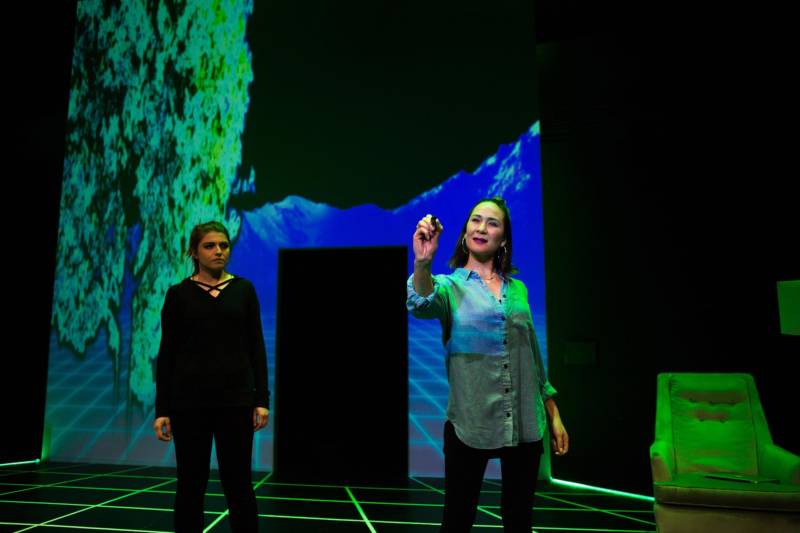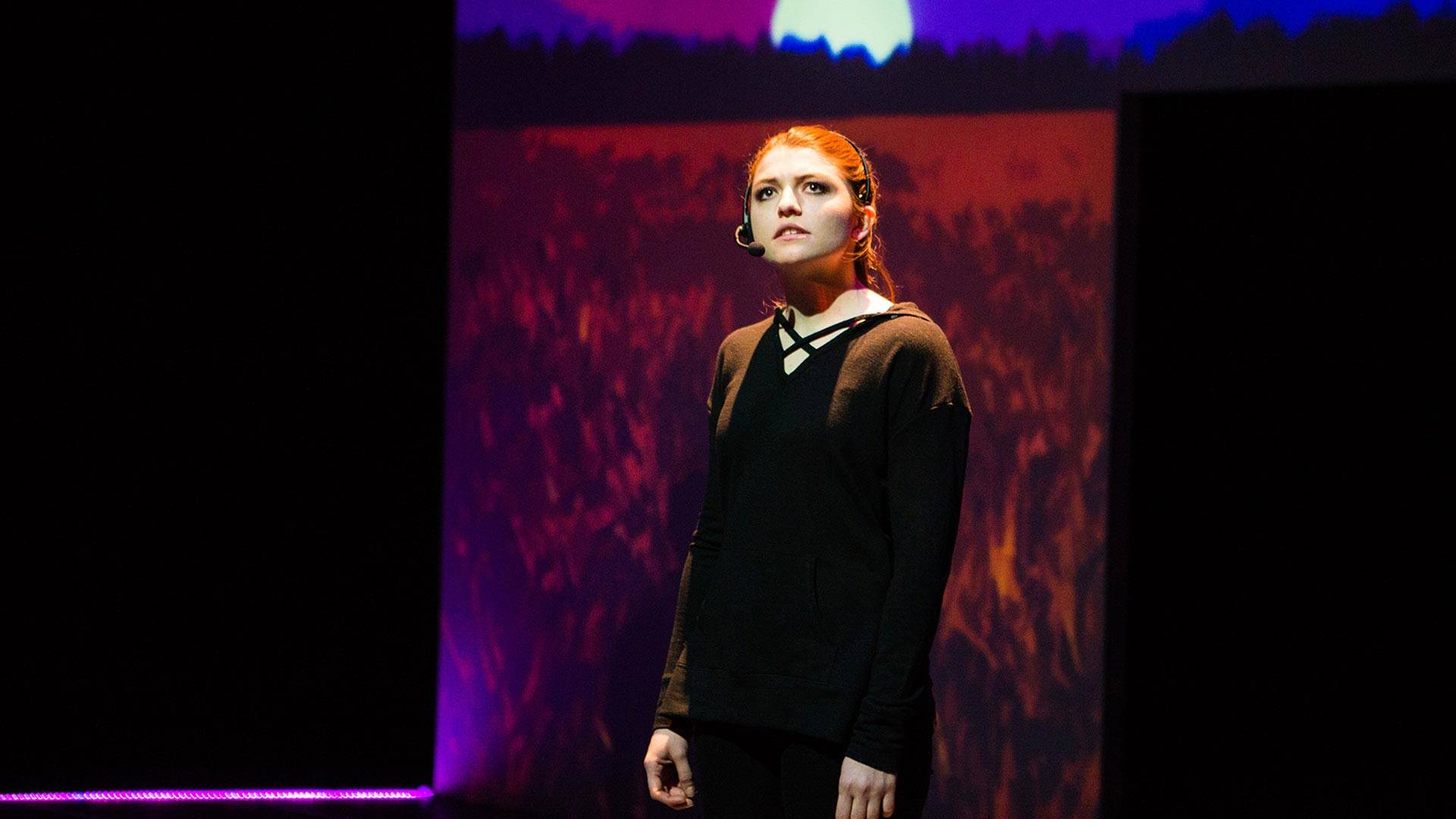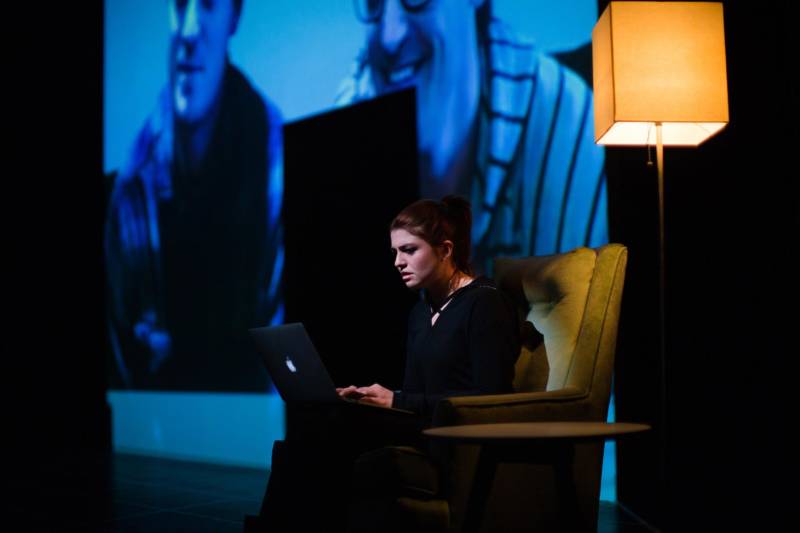Over the past week, teenage survivors of a mass shooting, perpetrated by a former classmate, were attacked online by self-proclaimed patriots; Russian twitter-bots were purged by the thousands; and social media pile-ons continued to rule the public discourse — all scenarios foreshadowed by the roiling 2014 controversy that was Gamergate.
Ostensibly a movement decrying “access journalism” between video-game developers and video-game reporters, Gamergate first focused on one female developer, Zoë Quinn, whose relationship with a journalist fueled suspicion that she’d gained favorable coverage for her games during the course of said relationship (a claim which later proved to be untrue). But it quickly spiraled outward, far beyond the gaming community, becoming an object lesson in both the act of online trolling and in the combating of same.
That’s an awful lot of baggage for one play to unpack, particularly a play written before the election of our Troller-in-Chief, so if Walt McGough’s San Francisco Playhouse premiere Non-Player Character doesn’t quite empty the suitcase, it doesn’t feel like a deliberate omission. At its core, Non-Player Character is just one of many possible stories that might illuminate the unintended consequences of revenge gone viral.

Upon entering the theater, the audience encounters a simple yet effective stage designed by Jacquelyn Scott, reminiscent of an old Atari game console: a glowing perspective grid delineates the floorspace, stretching into a flat where a single portal gapes; ambient 8-bit music blooping softly in the background.
From the first moment of the play, under the direction of Lauren English, we’re immersed in the world of Katja (Emily Radosevich), an aspiring video-game developer. She draws with a stylus into thin air, and on the “computer” screen behind her (projections and sound both superbly designed by Theodore J.H. Hulsker), a digital tree grows — the first of many iterations she’ll work on during the course of the play.





